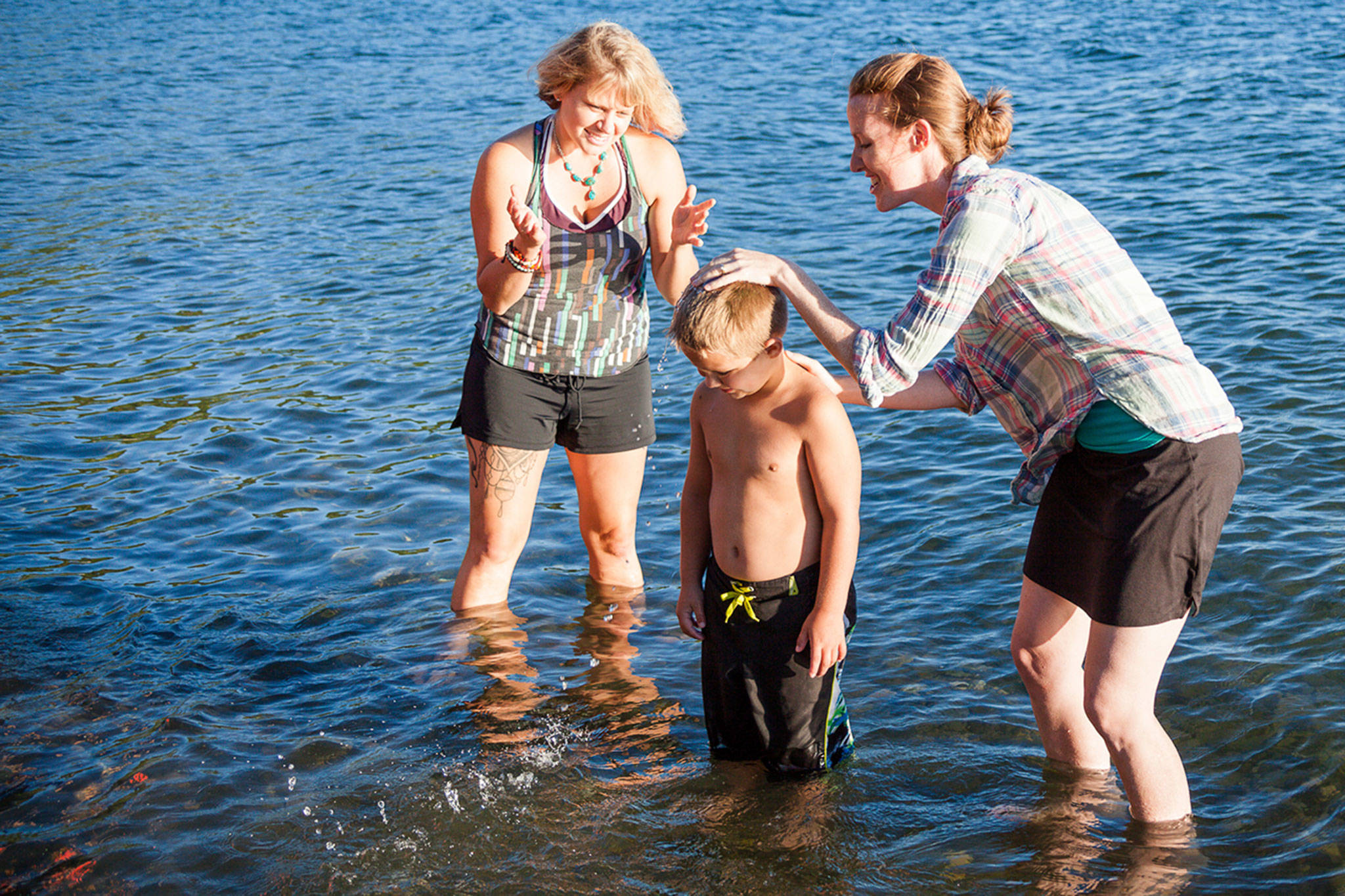MARYSVILLE – Starting Sunday, United Methodist Church is expanding from two to three services.
The reason: rapid growth.
Since Jenny Smith became pastor two years ago, the church of about 200 has grown by 62 new members. The first service is packed, so to give them some breathing room there will now be two contemporary services – at 8:30 and 9:45 a.m. – along with a traditional service at 11.
Why such growth in a time when many churches are losing members?
Smith thinks it’s because the church is so welcoming. Just before she started there, the members voted to become a “reconciling church.”
“They drew a firm line in the sand,” Smith said. “All are welcome here, no matter their family structure, sexual orientation, political affiliation – which has really been a challenge this year.
“We’re not perfect, but we are open to conversations.”
The church sign out front has a rainbow on it.
“That’s the first thing people ask about,” Smith said.
Barb and Sabrina Warren have been attending for almost two years. Some friends recommended the church to them.
“We feel fully accepted, not second-class citizens,” Barb said. “Loving God is enough.”
Barb said the church also is accepting to their son, who has Asberger’s Syndrome.
“He marches to his own drummer,” she said. “Open hearts, open minds, open doors…”
Barb said many other denominations allow people in the LGBTQ community to attend their churches, but they don’t allow them to be members.
“I grew up in the church and didn’t want to be just an attendee,” Barb said.
The Warrens have been partners for 20 years, but they got married at City Hall in Seattle the first day it was legal. “We were part of history,” she said. “But who my partner is has nothing to do with who I am.”
Barb grew up Baptist, but said she feels closer to Methodists.
“I’m not hung up on the name above the door,” she said.
Smith said others in the LGBTQ community have told her, “I didn’t know a community like this existed.”
The Methodist Church nationally is split on the issue. But she had a theory about why it was so accepted here.
“A lot of our Boomers have LGBTQ kids,” she said. “There’s love for the whole family.”
She said even those who may have been against the idea have had their hearts softened.
“A lot of people shift where they are when they know somebody,” she said.
Another reason people seem to be drawn to the church is its involvement locally. It is the first church to donate a house to be part of the Marysville Extended Stay Housing program.
They call it their Miracle House. Three formerly homeless men live in the transition home. The church took a special donation Christmas Eve and came up with enough money to pay the rent on the home for them for an entire year.
The church works with the Everett Gospel Mission to hold the men accountable.
Smith said all three realize living in the house is not the end product. “They’re all focused on getting out of the house” and being on their own, she said.
Smith said another reason newcomers give for going there is they are not afraid to ask the tough questions.
“They did not feel like they could challenge” what was being said at other churches, she said. “Asking hard questions strengthens your faith.”
Tom Albright, a former pastor at the church, said he is glad to see the church growing again. But he said the church always has had the mindset of community. He recalled when Hurricane Katrina hit that more than 100 members of the congregation went to Mississippi at different times to help rebuild houses – and even a church.
The church also was involved with helping people in Kenya, a ministry Albright continues to this day.
“We used to joke that our mission was mission,” he said.
Smith grew up in Ohio, went to college there and in Florida, then was the associate pastor at three churches in Alaska. This is her first position as lead pastor, and the church was reportedly the first in town, started in 1885. She said she has spent a lot of time here trying to understand the sense of community.
“What is important to us?” she said.
So far, she likes what she sees.
“As a church you have an incredible heart for those who live in the margins,” she told the congregation in her sermon Sunday. “You have a heart for people who have been pushed aside. “You do good works when love is behind it.”
Other programs
The United Methodist Church also offers:
•Kloz for Kids is in its 9th year. Low-income folks can shop for free from donated clothing.
•Community Lunch for the homeless at the Unitarian Church. Wednesday night dinners for the community at 5:30.
•Emergency Rescue trailer.
•Rebuilds home lost in wildfires.
•Stay-at-home dad playgroup.
•It also offers what many churches do, including: youth program led by Jenny’s husband Aaron, worship team led by Aaron, traditional choir, Monday night small groups, and Meditation and other classes at 6:30 Wednesdays.


